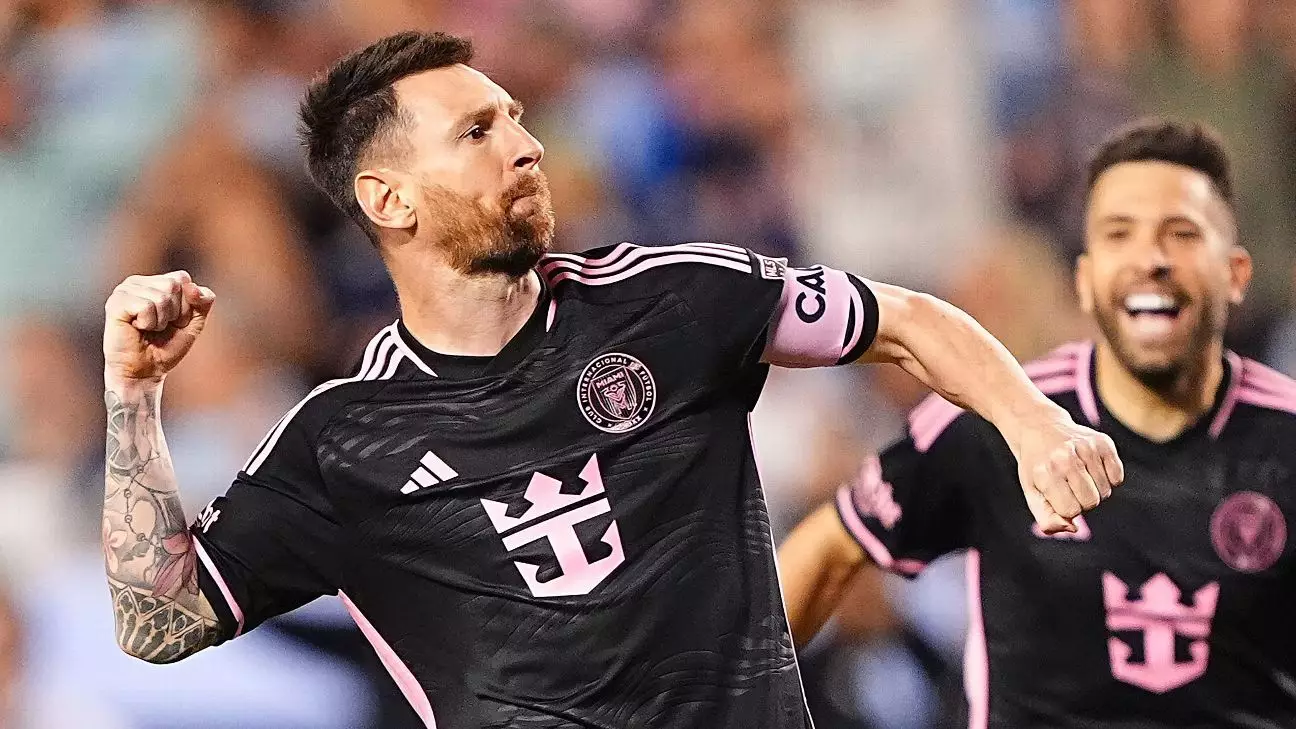In the realm of professional sports, the definition of the Most Valuable Player (MVP) award is a frequent subject of debate. The criteria for what constitutes “value” can differ dramatically depending on whom you ask: is it merely the best performer statistically, or does it hinge on a player’s impact on a team’s success? The question becomes even more convoluted when factoring in elements like team dynamics, external influences, player availability, and the overall narrative surrounding a season. An exemplary case elucidating this discourse is the announcement of Lionel Messi being awarded the MLS Landon Donovan MVP.
MVP criteria are as unique as the sports they represent. For some, the MVP should be the athlete who shines brightest amid a constellation of teammates; for others, it could be the player who single-handedly guides an underdog team to unexpected heights. This philosophical conundrum extends beyond merely looking at raw statistics to asking, “What does it mean to be valuable?” The ongoing discussions around Messi’s MVP award in Major League Soccer (MLS) exemplify how subjective the MVP designation can be.
Lionel Messi’s landmark season with Inter Miami saw him contribute 36 goals (20 goals, 16 assists) in only 19 matches, raising eyebrows and expectations. The impressive conversion rate of 2.18 goal contributions per 90 minutes played is nothing short of extraordinary in any league. By the numbers alone, it’s clear that Messi was a catalyst for his team’s offensive success, allowing Miami to clinch a Supporters’ Shield and amass an impressive total of 74 points, an achievement previously thought unthinkable for the franchise.
However, a dig into the numbers reveals some potential red flags. Messi participated in just 55.8% of regular-season matches and logged a mere 1,486 minutes on the pitch, less than half of what is available during a standard season. This brings forth the argument: should Messi be celebrated for achieving so much in such limited time, or does his absence invalidate his MVP consideration?
Looking at Inter Miami’s performance without Messi offers a complex juxtaposition. The team, at 10W-2D-3L without him, still managed a commendable record that would have netted them 72 points over an entire season, only one point shy of the record set by the New England Revolution in 2021. These statistics cast doubt on whether Messi was indispensable to his team’s success—after all, they weren’t far from elite performance even in his absence.
In counterpoint, it’s essential to consider the intangible benefits Messi brings to the roster. Not only does he elevate his teammates through his on-field presence, but his arrival also created a gravitational pull that attracted other exceptional talents to Miami, such as Luis Suárez, Sergio Busquets, and Jordi Alba. Without Messi, you could argue that Inter Miami’s roster would have had a significantly diminished talent pool, limiting their chances for success in a competitive league.
Another layer to this MVP discourse lies in Messi’s economic impact on both Inter Miami and MLS. His presence has undeniably spurred significant increases in revenue from ticket sales, sponsorships, and media rights. Although these factors theoretically shouldn’t sway MVP votes, they do shape the broader context in which the award is received and perceived. Messi’s marketing draw generates not only immediate financial gains but also enhances the league’s profile globally.
The competition this season also plays a role in validating Messi’s MVP status. While other candidates showcased exceptional individual performances, most were accompanied by teams that did not achieve the same level of success or consistency. In this light, the MVP award isn’t merely about individual accolades but must also consider team achievements and contributions, again bringing us back to the perennial question of “value” within team sports.
The selection process for MVP in any professional sport mirrors the greater philosophical debate about value in team dynamics. With Lionel Messi’s 2024 MVP award, we confront the complexities of player impact, statistical measurement, and the intricate web of relationships that define a team. While his numbers are staggering, it is the context—his availability, his team’s overall performance, and the profound ripple effect of his presence—that shapes the ultimate narrative. This doesn’t just challenge our understanding of what it means to be “valuable” but adds layers of nuance to the conversations surrounding such prestigious accolades. As long as sports exist, the debate over MVP will continue, transformed each season by the talents on the field and the stories they create.

